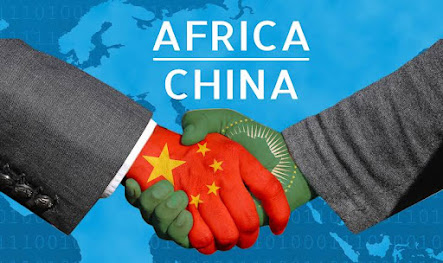China’s engagement in Africa : The need to engage with Africa Civil society
There is no better time than the eve of a China-Africa summit, FOCAC, to question the nature of China’s engagement with Africa. Held this year at the ministerial level, the FOCAC opens on Monday, November 29th in Dakar and will be like all other bilateral summits with Africa, a politically centered summit where the civil society had no role in shaping its agenda. With the noticeable exception made this year with the France- Afrique summit which turned out to be a "dialogue" between French president Emmanuel Macron and some African youth representatives, the African civil society has never been associated to these discussions.
China’s engagement on the continent is strictly circumscribed by political correctness, where only government-approved actors (public or private) are legitimate partners. Civil society and political oppositions are not in the picture. Of course, this approach is in total alignment with China’s non-interference policy in other countries’ internal affairs. So, engaging the political opposition would surely put them on a tough spot vis-a-vis their governmental partners. Furthermore, engaging civil society can be a tricky exercise in many ways. First, Civil society and many African governments have an antagonistic relationship to the point where, in many countries, civil society is perceived as an extension of the political opposition.
Second, Beijing would certainly not want to antagonize its African partners, whose neutrality or pro-China stance in international organizations is essential to Beijing on issues like Xinjiang, Hong Kong, and perhaps Taiwan tomorrow.
However, not engaging with civil society, in an unstable sociopolitical context where society is divided along ethnic and/or religious lines, is likely to be a serious mistake that might hurt China in the long run.
If there is something that we can take away from 2021 on China’s presence in Africa, is that disregarding civil society and only considering governments as sole partners, has proven not to be sufficient to guarantee the stability of their investments in Africa.
The revision of the Chinese contract in DRC, the Bauxite deal in Ghana, the SGR project in Kenya, and the Iron deal in Liberia, all speak volumes to that reality. In these various cases, civil society has proven to be a force that can either fuel the debate or disrupt the course of events for Chinese projects. Whether it being an NGO, media, churches, workers union, or simply an unorganized yet structured tribal group, the civil society in Africa is an entity you cannot just discard. It is part of the governance conversation, whether that be on political, economic, or social issues. Although its real ability to bring about changes and improve governance is still debatable depending on the political context of the country, its ability to disrupt and stir up governance debates cannot be overlooked. And China has seen firsthand how critical the civil society is of its presence on the continent.
China’s assumption that it could run its business in Africa smoothly only stand strong in environments where governments- as political decision-making entities - enjoy absolute uncontested power with a long-time horizon. Meaning, it only stands in countries with strong institutions, which is not the case for many African countries with strong regimes yet very weak institutions.
One might ask what China would gain in engaging with civil society since the risk of frustrating governments might outweigh the benefits?
Here are some reasons:
- First, by engaging directly with civil society, China would be opening a direct dialog with African citizens whose perception of China is often shaped by racist and brutal behavior of Chinese individuals running their daily business or of Chinese managers on Chinese led-projects. The difference between one individual and the Chinese government is often not made. Opening that dialog will help build a new narrative about China and portray itself as a partner to the country and its people rather than the government only. And if China has long-term interests in Africa, it should care about its image at the bottom.
- Second, the pressure for good governance that civil society puts on governments contributes to creating a transparent environment that may reduce the risks and the cost of doing business with African governments. I do believe that in the long run, China would have more to gain in working with stable and transparent African governments and institutions than weak and corrupted ones. Last week Xi Jinping’s comment on the necessity for businesses to assess risk environment, shows the increasing concern in China over the cost of doing business in unstable and risky environments (project costs, debt repayment issues)
- Third, because of the political instability, china would gain more by extending its ties beyond government-to-government relations and approaching civil society and other stakeholders. Should a new regime take power and come with a new agenda or approach toward China, it would enjoy a certain degree of social capital allowing it to build resilience in a possibly “hostile environment”.
Unlike western civil societies, China does not have much to worry about civil societies in Africa which are more concerned about governance issues on the continent than China’s Xinjiang or Hong-Kong policy. It might even find unexpected allies sharing similar views on one country’s sovereignty and unity. Of course, they will not be able to engage on political and civil freedom, or free and fair elections issues; however, they might be able to talk about economic governance and all other issues pertaining to Chinese investments on the continent.
Now the real challenge would be how to engage those civil societies without stirring up the wrath of governments who perceive them, most of the time, as opposition rather than governance partners?



Harrah's Resort Southern California Casino - KJR
RépondreSupprimerHarrah's Resort Southern 논산 출장마사지 California Casino features slot machines, table games, baoji titanium a poker room and 구미 출장샵 an outdoor pool. Guests 안동 출장마사지 can also enjoy a swim 진주 출장샵 in